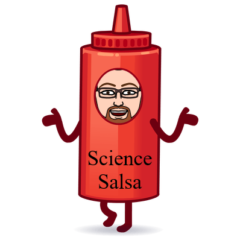Just a quick entry related to my previous post: Diabetes and Hispanic health; we are what we eat

This week the Radiolab show on “Inheritance” mentioned a study by Lars Olov Bygren suggesting your health and life expectancy are determined not only by your diet, but also by your grandfather’s diet when he was a kid.
According to Radiolab, Olov Bygren “grew up in a remote village north of the Arctic Circle. It wasn’t an easy place to be a kid, and he has cold, hard data to back him up: book after book of facts and figures on the lives of generations of the town’s residents, from their health to their financial success, to detailed records on the boom and bust years for crops. The numbers tell a story of wild swings in fortune — feasts one year, harsh winters and famine the next.”
Olov Bygren studied the health and crops records from this isolated region to figure out if there was a relationship between how much food was available during a period of time and how long people lived afterwards.
Radiolab explains Bygren’s results beautifully, but John Cloud in an article of Time magazine summarizes them perfectly: “To put it simply, the data suggested that a single winter of overeating as a youngster could initiate a biological chain of events that would lead one’s grandchildren to die decades earlier than their peers did.”
Cloud continues explaining that this inheritance is possible due to “[…] changes in gene activity that do not involve alterations to the genetic code but still get passed down to at least one successive generation. These patterns of gene expression are governed by the cellular material — the epigenome — that sits on top of the genome […]. It is these epigenetic “marks” that tell your genes to switch on or off, to speak loudly or whisper. It is through epigenetic marks that environmental factors like diet, stress and prenatal nutrition can make an imprint on genes that is passed from one generation to the next.”
We are what we eat, but we are what our young grandfather ate too. This adds a new dimension to the epidemics of diabetes and heart decease among Latinos in the US today. Would starving conditions of the farmland in Latin-America, three or more generations ago, help sustain the “Latino epidemiological paradox”, and increasing the life-spam of Latinos compared to other populations in the US?, or would a time of plenty long time ago derail any efforts to improve the Hispanic health in the US?
I know that my paternal grandfather did not starve as a kid. His family had a dairy farm that provided food and an extra income to a very large family. No good news for my epigenome, except because it is difficult to overeat when you are burning so many calories at the farm. The situation changed drastically when my father was a kid, during “La Violencia” they left their farm in a rush, before armed men “confiscated” all their cattle. They became refugees at the great-grandfather house in the town nearby. But despite poverty, they did not starve.
My father has indelible memories of the weekly menu during his “barefoot childhood”. Saturday was market day, and they had liver with onions the same day, he loved Saturdays for that. The rest of the beef was salted and smoked in the patio to keep it from spoiling during the week. Friday was often a meat-less day, but they had some hens and they ate eggs that day. Soup was their staple food, either plantain, bean, arracacha, or the famous “sancocho” soup; a chicken stew with potato, yuca, plantain, and pork or beef. The corn for the arepas, powdered milk, soy oil, and yellow cheese came via the catholic parish and were “donated by the people of the United States of America”– the first English phrase my dad can remember. My family complemented its diet with panela, home-grown yucas and cabage, and they ate the fruit available on the fields: guamas, mango, pomas, and moras.
So far there is no clear sign of overeating in my recent ancestral past, good news for my life expectancy! Too bad I did not have this information when I was a kid. I hope by the time my grandchildren are born, there will be a method to revert all the damage I did to my family’s epigenome while watching TV and eating cookies.
——-
I wrote this post inspired by my friend Elisa, from the blog larval metamorphosis. She is the host of this month’s Diversity in Science blog Carnival in honor of Hispanic Heritage Month. Contact her if you want to be involved. Thanks!
